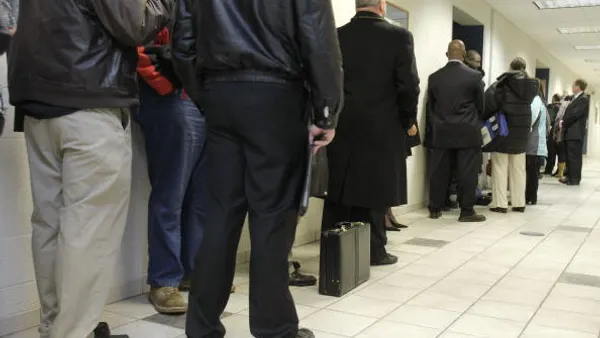Real workplace inclusion relies on genuine connections and a sense of support at work, according to Janine Yancey, founder and CEO of Emtrain, a Silicon Valley culture tech solution and provider of workplace education.
It’s one finding of a report released earlier this year, examining the correlation between workplace bias and its effect on inclusion.
The large-scale study — carried out over two years between 2019 and 2021 — showed that workers’ senses of belonging, respect and career prospects can be affected by bias, highlighting the relationship between genuine connections and support. “It's powerful evidence that I think can help guide our way forward as employers,” said Yancey.
With an emphasis on effects of racism and harassment at work, the report, co-authored by Yancey and others — including Joan C. Williams, the founding director of The Center for WorkLife Law, a research and advocacy organization at the University of California at Hastings — interrogated links between silos, or “unhealthy inclusion,” psychological safety, career development and emotional well-being in corporate culture. The aim was to “change how people behave in the workplace and improve team dynamics.”
In team settings clumsily navigated on a day-to-day basis, incidents come up, Yancey explained. “People don't intend to be mean or callous. They don't. But when there's no emotional tie, they show up in a way, that's really, you know, like nails on a chalkboard for that other person. And that's the crux of our research paper.”
The Emtrain-WorkLife research found that healthy inclusion yields a sense of acceptance and strong social connection that serves as a buffer when “people put their foot in their mouth,” she said, explaining that inclusion builds a bank account of trust and social cohesion that drives good employee relations and respect amongst employees.
In a team setting where an employee feels psychologically unsafe, that employee benefits from seeing a people leader model inclusive collaboration dynamics, said Yancey. To the extent a team will mimic that behavior, it is able to make a “deposit in the trust bank account” of that vulnerable team member.
The research found that workplace support comes by way of these emotional connections. Diversity, equity and inclusion are significant factors. Yancey said, “It really does come down to more representation in positions of power, frankly.” Shared stories can generate emotional ties and create a more social, cohesive fabric of colleagues that experience the same things — and because there's always safety in numbers, those colleagues will share thoughts with the larger team, and all of a sudden, the team is emotionally in sync.
“It’s that social connection, that trust bank account, that allows people to take shortcuts [with one another]. Without those emotional ties, there are no workable shortcuts,” she said, citing Pew Research Center data from March that showed “feeling disrespected at work” motivated more than half (57%) of job quits. Yancey said that connection must happen first, before the care can happen. Then, significant cultural change is possible. In this environment of healthy inclusion, in a real workplace community, a problem for one becomes a problem for all.
But this growth doesn’t come without cost.
Yancey, a former employment lawyer, preemptively addressed the “business case for DEI,” asking rhetorically, “Does this pencil out? Does this make sense economically?” Then she responded, “You have to create an environment that actually feels good. That costs a certain amount of money. It is what it is. Creating such minimum requirements within organizations should not have to be justified by some return on investment. It’s [what] we do for people, for our teams.”












